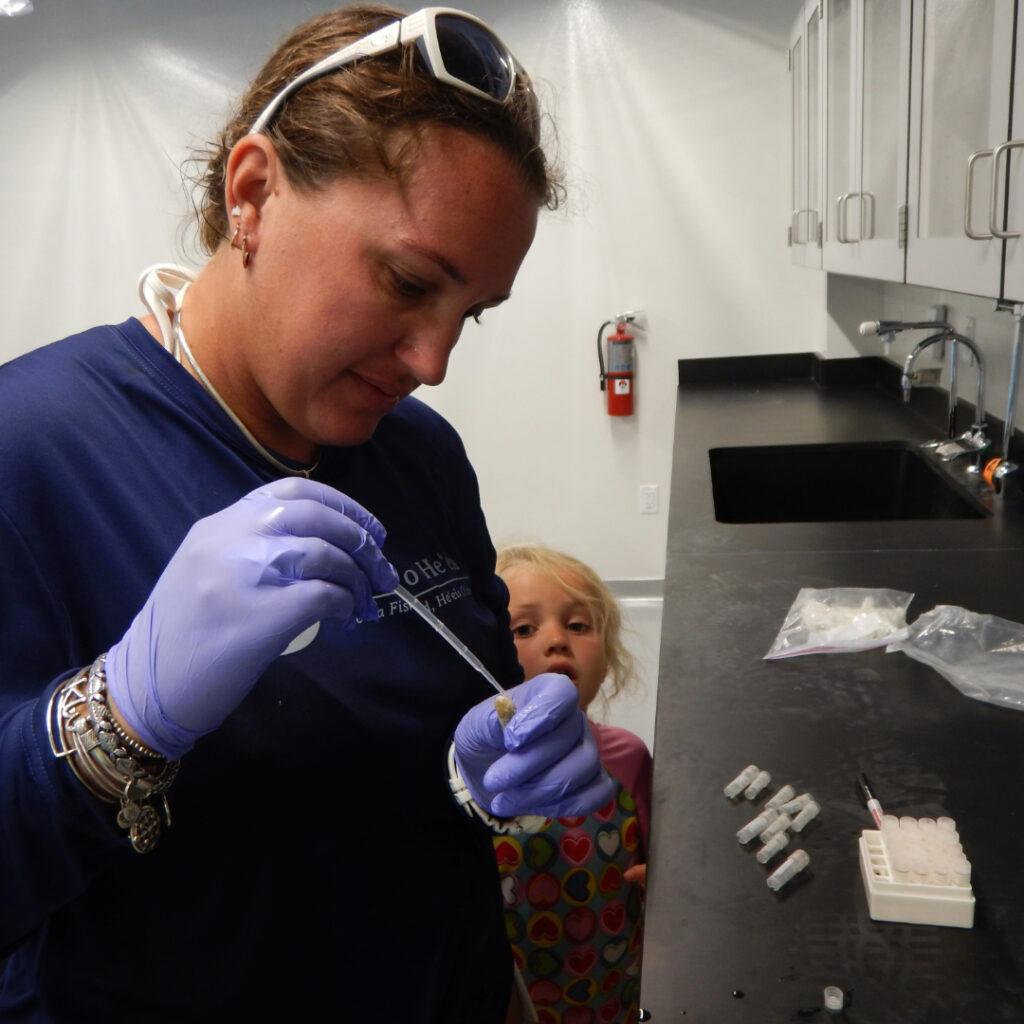O’Donnell preserving Symbiodinium samples with her daughter. Photo credit Kelli O’Donnell.
Kelli O’Donnell is PhD student in Fisheries and Aquatic Sciences at the University of Florida. She was awarded the Florida Sea Grant Guy Harvey Fellowship in 2025.
Since I was a little girl, I knew I wanted to work in the marine sciences field. With my father being in the Coast Guard, I’ve had multiple opportunities to live in the Florida Keys. I was always by the water, exploring its creatures. It was those experiences, along with trips to other reefs around the world that grew my love for the coral reef. However, it was not until later in life that I realized the decline happening to the Florida Reef Tract and what it meant increasing my appreciation towards the protections afforded by the Florida Keys National Marine Sanctuary (FKNMS).
As I became involved with multiple aspects of conservation through my career, I understood more about the intricate connections coral reefs have with providing habitat, coastal protection, supporting tourism, and the amazing nature of the coral itself. Learning, the reef can absorb up to 97% of wave energy, absorb nearly one-third of the carbon dioxide generated from burning fossil fuels , produce 17% of all globally consumed protein), and at least 25% of all marine species are dependent on the reef at some point in their lifecycle, infers that many species’ well-being is contingent on the coral reef existing.
Under his guidance, I completed a two-project thesis that provided information on comparison of two different methods to grow coral and then compared success of the same genotypes after outplant to their performance in the nursery. We found that suspended grow out methods yielded higher coral growth, but that benthic grow out methods were able to survive longer after an extreme bleaching event. We also found that nursery observations were not predictive of performance following outplant. This research provided evidence on the trade off in grow out methods and the need to preserve genetic diversity during outplanting vs. focusing only on certain high performing nursery genotypes.
